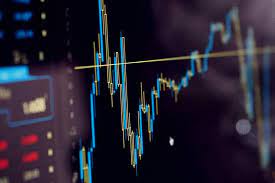
Top 10 CFD Brokers in the Market
CFD (Contract for Difference) trading is an increasingly popular market that gives traders the chance to speculate on the price movements of various assets without actually owning them. CFD brokers facilitate these trades by providing the trader with access to a wide range of instruments. However, not all cfd broker are created equal, and it’s important to understand what to look for when choosing a CFD broker. In this comprehensive guide, we will take you through everything you need to know about CFD brokers.
What is a CFD broker?
A CFD broker is a financial institution that provides access to CFD trading markets. These brokers typically offer their clients the ability to trade CFDs on numerous underlying assets, including indices, commodities, stocks, and currencies. To participate in the CFD market, traders need to open an account with a broker, deposit funds, and then begin trading CFDs.
How does CFD trading work?
CFD trading is based on the speculation of price movements of underlying assets. Unlike traditional investing, a CFD trader doesn’t own the asset they are trading; they are simply speculating on the asset’s price movements. If the trader believes that the asset’s price will go up, they open a long (buy) position, and if they believe it will go down, they open a short (sell) position. Traders then earn or lose money based on how accurate their predictions were.
Pros and cons of CFD trading
CFD trading has numerous advantages over traditional investing. Firstly, CFDs offer traders with the ability to learn the markets and execute trades with ease. Secondly, traders don’t need to have a large amount of capital to begin trading CFDs. This means that they can access leveraged positions that are far greater than the amount of capital they have deposited – although it’s important to note, this also means the potential losses could be higher. On the other hand, CFD trading also carries risks. These risks include overnight financing charges or maintenance margin calls, which could lead to the closure of open positions due to insufficient margin.
Best practices for CFD trading
CFD trading is a serious business, and traders should ensure they practice risk management and follow strict money management protocols. It’s important to use stop-loss orders and take profit orders to manage risk, as traders can lose more than their initial investment if positions are held. Additionally, traders should follow a disciplined approach to research and analysis to aid their decision making. Finally, traders should not become too emotionally attached to their trades and must stay rational, as greed and fear can often drive decisions that go against their trading plan.
Conclusion:
CFD trading can be a great way for traders to gain exposure to large price movements of a variety of assets without actually owning them. However, as with all trading, it comes with inherent risks, and traders need to understand these risks and how to manage them before engaging in CFD trading. By following the best practices outlined in this article and carefully selecting a reputable CFD broker, traders can participate in this exciting and dynamic market. Remember, CFD trading requires a disciplined approach and strict risk management, so always stay level-headed and make informed decisions.